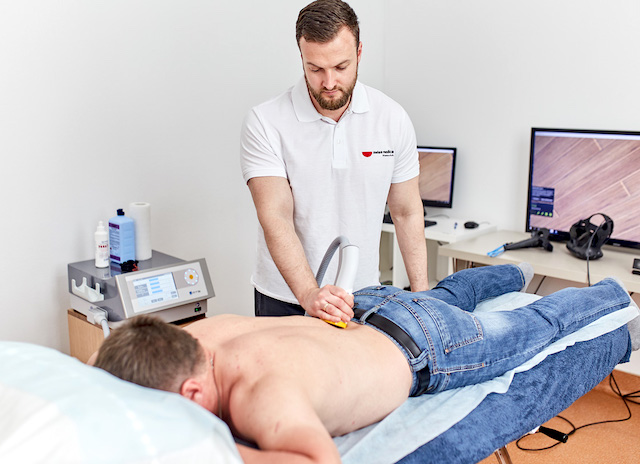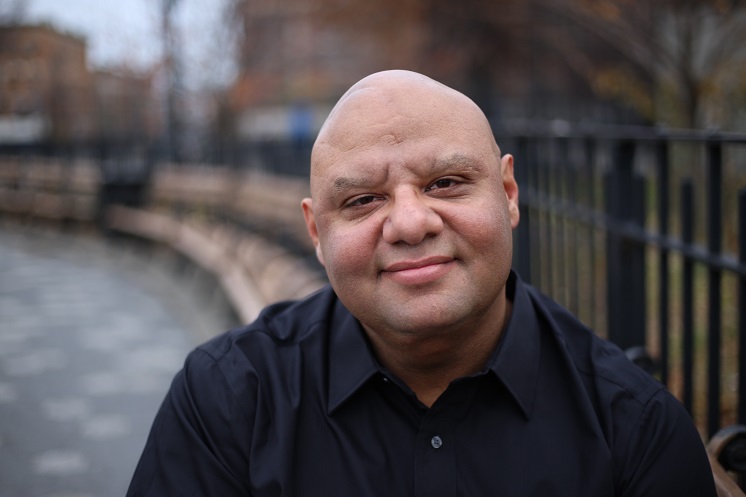This article is written in collaboration with specialists of the Swiss Medica clinic—an Elephant Mindful Partner. Stem cells in general are, as yet, clinically unproven, but they do have big fans. Is it likely we will be using stem cells to fix many many issues we suffer from today? Are stem cells the most promising field in medicine? Yes and yes! ~ ed.
“Step by step, my body is healing itself.”
“A few years ago I was in the end stages of chronic kidney disease. I also had high cholesterol and high blood pressure as well as Type 2 diabetes. Today, I officially no longer have diabetes or high blood pressure, even after being off my medication for nearly two months. I believe stem cell therapy, together with improved diet and exercise, has helped my body to begin healing itself.” ~ Joseph Jerez, 48, New York
Find out if stem cell therapy may work for you >>
What are stem cells?
Stem cells are our bodies’ own unique cells. They are always present in our bodies, regulating regeneration processes, but, as we age, the amount of these types of cells decrease, ultimately leading to aging and illnesses.
Because stem cells are able to multiply and stimulate the growth of new cells, they help to treat diseases associated with tissue damage. They are also involved in immune processes in the body, which means they can be beneficial in the treatment of autoimmune disorders. Regenerative medicine therapy centers like Swiss Medica see patients with a range of conditions from multiple sclerosis (MS), diabetes, post-stroke, progressive lung diseases including emphysema, chronic bronchitis, and non-reversible asthma, autism, cirrhosis of the liver, arthritis, Parkinson’s and Alzheimer’s disease, macular degeneration, and many others.
Stem cell treatment is a safe and “natural” way of promoting self-healing, and does not typically have any side-effects.
How does stem cell therapy work?
When you undergo stem cell therapy at a trusted center, your own or donor stem cells are harvested from fat tissue, gums, bone marrow or peripheral blood, separated from other cells, cultivated to the therapeutic dose in accordance with Good Tissue Practice, and then re-administered to your body using an IV, intrathecal (via the spinal cord), intramuscular (direct to the muscle), intraarticular (directly into a joint), or local injection, depending on the disease.
The stem cells circulate in your blood system, spinal tissue, muscle, or local area until they are attracted to proteins secreted around inflamed or damaged tissue. This helps to eliminate the cause of the disorder being treated, reduce its symptoms, or even get a full recovery—depending on the initial condition.
Swiss Medica use several types of cell products, mostly multipotent MSCs, SVFs, and fibroblasts. All cell products are tested for biological safety and cell viability before administration.
What results can you expect from stem cell therapy?
When you undergo cell-based treatment, you get 100+ million viable stem cells in one dose. These types of cells directly improve damage in the body, triggering the healing process and helping to:
- relieve inflammation
- reduce pain
- repair wounds and damaged tissues
- stimulate the formation of neurons and new blood vessels
- restore lost functions
- eliminate the signs of aging
Using stem cells is sometimes an alternative to surgery (for example, joint replacement in arthritis), and the treatment procedure is painless. Stem cell therapy is a gentle way to improve many conditions that conservative medicine can’t treat.
Find out more about how stem cell therapy works >>
Is stem cell therapy right for you?
Every body is different and there is no one general answer about the effects of stem cell therapy in every unique case. You can arrange a free online consultation with a Swiss Medica expert and get your expected results based on your diagnosis.
Joseph Jerez is just one patient whose life has been turned around following stem cell therapy:
I started researching stem cell therapy when my doctors told me dialysis was my only option. I went with Swiss Medica because their reputation seemed most favorable. I communicated with several of their doctors before making the trip to Moscow in February 2018.
I was met at the airport by their translator and taken to their private clinic. I was immediately seen by at least 6 different doctors and all specialists in their field. They customized a stem cell treatment program especially for me. After the two-week treatment I started to feel better, stronger. When I returned home within a month my cholesterol was going down. Within four months I was no longer diabetic.
And now, over a year later, I’m still not diabetic. I went for further follow up treatment on two other occasions and I kept getting better!
My last treatment at Swiss Medica was February of this year. My blood pressure has returned to normal after having high blood pressure for over 20 years! Dialysis lowers your blood pressure but after my last stem cell treatment my blood pressure didn’t start off high anymore. Even on my meds my pressure was high. I haven’t had to take my meds in nearly two months. My blood pressure is taken every single day and doesn’t go into the high range anymore, which my doctor has verified.
I still have end stage renal disease but I’m working with Swiss Medica on that issue as well. I’m looking into combining genetic engineering with stem cell treatment to better allow my body to heal itself from the inside out. I return to Swiss Medica in Moscow in June and I’m looking forward to more treatment and discussing my ideas with the doctors there.
My medical indicators so far speak for themselves:
Hemoglobin A1c (HbA1C): A minor component of hemoglobin to which glucose is bound. In other words, the A1C test measures what percentage of your hemoglobin—a protein in red blood cells that carries oxygen—is coated with sugar (glycated). These levels depend on the blood glucose concentration: The higher the glucose concentration in blood, the higher the level of HbA1c.
Before treatment: 7.54%
Normal range: 4-6.4%
After treatment: 5.2%
C-reactive Protein (CRP): A protein made by your liver and sent into your bloodstream in response to inflammation. High levels of CRP in the blood may be sign of a serious infection or other disorder. Your CRP levels should be normal if you don’t have any infections or chronic inflammatory conditions such as RA, Crohn’s disease, or Lupus. Normal CRP levels are below 0.5 мg/l
Before treatment: 10.8mg/l
Normal range: up to 0.5mg/l
After treatment: 5.59mg/l
C Peptide: A blood test carried out to find out how much insulin your body is producing.
Before treatment: 44.3 ng/mL
Normal range: 0.53-2.0 ng/mL
After treatment: 6.0 ng/mL
Blood Pressure:
Before treatment: 150/100 -175/100 (and that’s with medication!)
Normal range: 120/80 – 140/90
After treatment: 120/80 – 130/75 (without medication!)
Weight:
Before treatment 275lbs
After treatment 225-235lbs
Step by step my body is healing itself. I’m also working hard to be as healthy as possible. I’ve still got a long way to go but I’m definitely moving in the right direction. Never give up hope for a better tomorrow!
Watch more Swiss Medica reviews >>
It’s important to understand that stem cell therapy is not a universal way to treat all known diseases. It works for some cases, depending on several factors (like initial condition and comorbidities), and the scale of results can not always be predictable in full.
We can only assume certain improvements when we allow the body to heal itself using cell-based products. However, stem cell therapy seems promising in conditions which cannot be treated with the help of conventional medicine.
Talk to an expert at Swiss Medica clinic (headquarters in Switzerland, branches in Austria, Serbia, and Russia) by calling +41 43 508 55 25
Or visit the website to find out more.
 Share on bsky
Share on bsky



Read 6 comments and reply